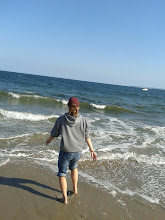There are four main languages for communicating here depending on one’s ethnicity and geography. In addition to these four, there are two written languages that are used for instruction in school, and to communicate cross-cultures. In the North (where I am located), you see a very heavily concentrated Moor population. These people were traditionally a nomadic group, and further divided into Black Moors and White Moors. These two groups cover the majority of the area of Mauritania, covering the North, and make an appearance into the South. Once you get further South however, along the Senegal River and near the boarder to Mali, you see the other languages mostly. In the South we have the Soniké, Wolof, and Pulaar communities, each with their own language.
Hassaniya: This is the language spoken by all Moors. There is obviously some regional accents like you see in English, however it is fairly consistent throughout Mauritania. A Moor from the South can easily go to the North and have no communication problems. Hassaniya is not technically a language though; it is a dialect of Arabic, and not written. They say that it is the closest of all the Arabic dialects to the mother language, with about 70% of the structure and words being the same. Of our class in Peace Corps, most of the people will learn Hassaniya, as it is very widely spoken.
Pulaar: Like Hassaniya, Pulaar has traditionally been an unwritten language, however I believe that they are in the process of changing that. I think there may even exist a French-Pulaar dictionary, and some books. Pulaar is spoken mostly in the South along the Senegal River, however we do have a small Pulaar population here in the North (this is probably due to the mines we have here that draw people from all over Mauritania to work, and may not be entirely reflective of a more traditional Northern city). This is the second most learned language in the Peace Corps as it is very prevalent in the South.
Soniké: In our class we had 3 of 77 who learned Soniké. You will find small villages in the South that will speak Soniké just dotted along near the boarder. In Rosso, where our training site was, it was very rare to find Soniké speakers due to the proximity to Senegal (where I believe they speak Wolof and Pulaar). Once again, the language is not written.
Wolof: We only had one person from our class who learnt Wolof, but it is a language that used not only in Mauritania, but also in Senegal. As with the other languages, it is also not written.
Arabic: This is technically the “official language” of Mauritania. Everywhere you go, there are a ton of signs in Arabic. All of the coke cans have both the roman lettering and Arabic. Many people watch news programs broadcasted in Arabic, and one of the most popular TV program here is Latin American soap operas dubbed into Arabic. It is obviously much easier for the Moor community to understand the Arabic due to the proximity of the language, however only well-educated people (usually men) can read Arabic. Most everyone can read, write, and speak some things in Arabic, because it is the language of the Koran, but there are many people who have very little literacy in Arabic.
French: Brought to Mauritania by the colonizing French, the French language is more or less the common denominator among all of the communities. Many people know at least a little bit of French, especially in the South because Senegal has a great deal of French influence as well. Like Arabic, it is one of the languages of instruction for school, so many of the school children can speak a little bit once they are of school age. Walking down the streets though, many of the kids will only know how to say, “hello, how are you?”. There are a few news broadcasts and channels in French, but not to the same extent as Arabic – this is probably due to the satellite dishes here pick up many programs from UAE and Saudi Arabia. The French programs that are picked up for reception are usually from Senegal, a little bit from France, and there is one Mauritanian news case in French.
It is very common to see people who speak many of these languages, especially in the South. In the North, for the most part the people I’ve come across will first speak Hassaniya, a little bit of Arabic and French if they are well-educated. Otherwise they will generally speak just Hassaniya. In Rosso (the South), where there are more cultures present, it is very common for people to speak many of these languages. There was one lady I met who was completely illiterate (did not even know the letters for either French or Arabic), but she spoke impeccable French, Arabic, Hassaniya, Wolof and Pulaar.
Subscribe to:
Post Comments (Atom)

1 comment:
I just found out i am originally from northern mauritani moors or moors that traveled from morocco but traveled to mauritania. Are these moors prevalent in your area, are they called white moors, also do they speak hassaniya?
Post a Comment